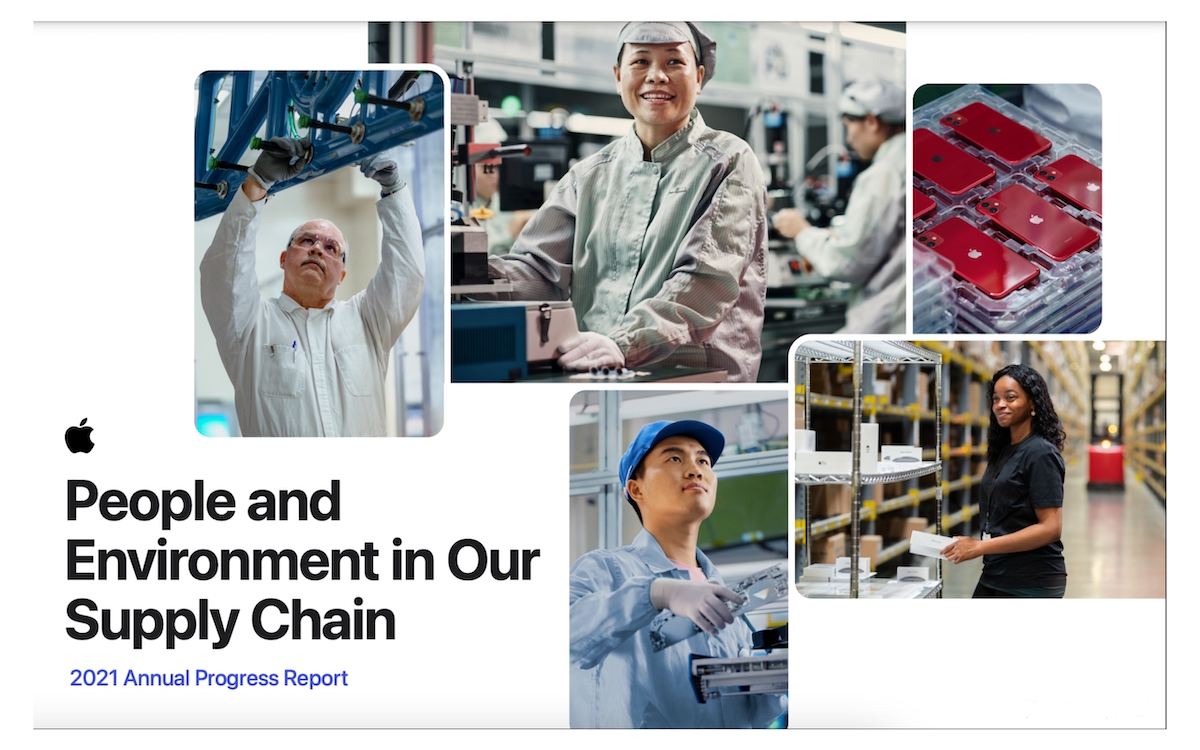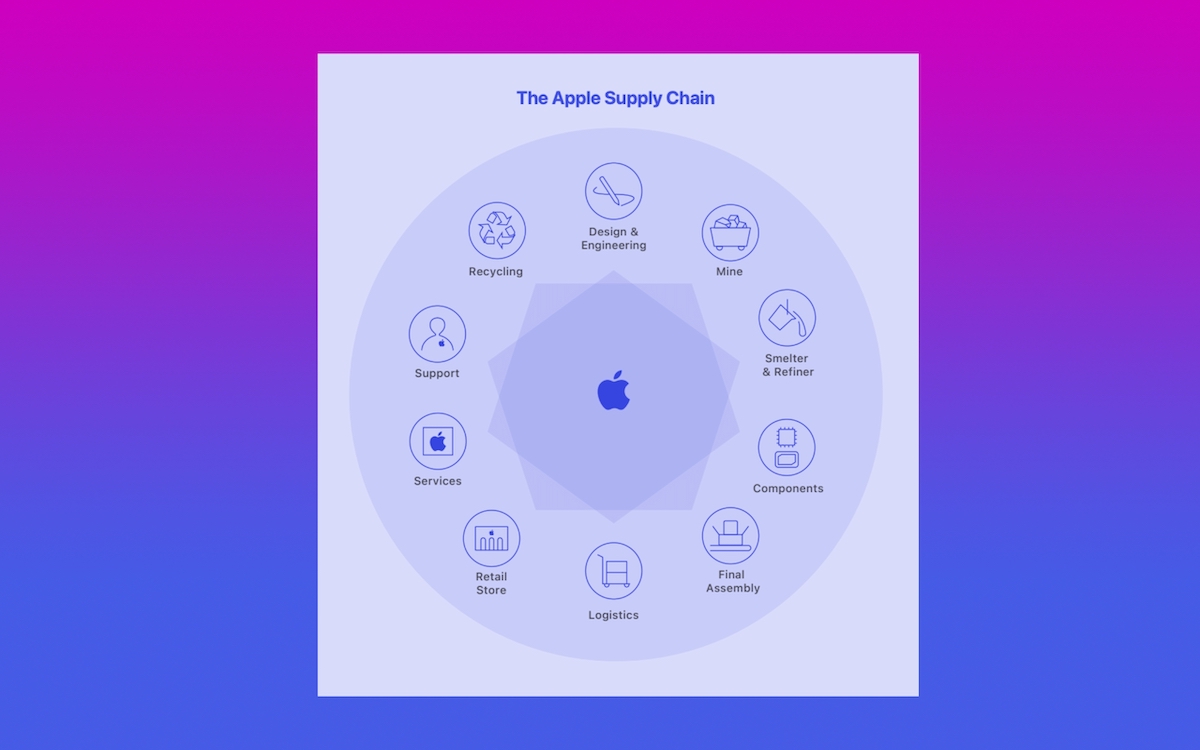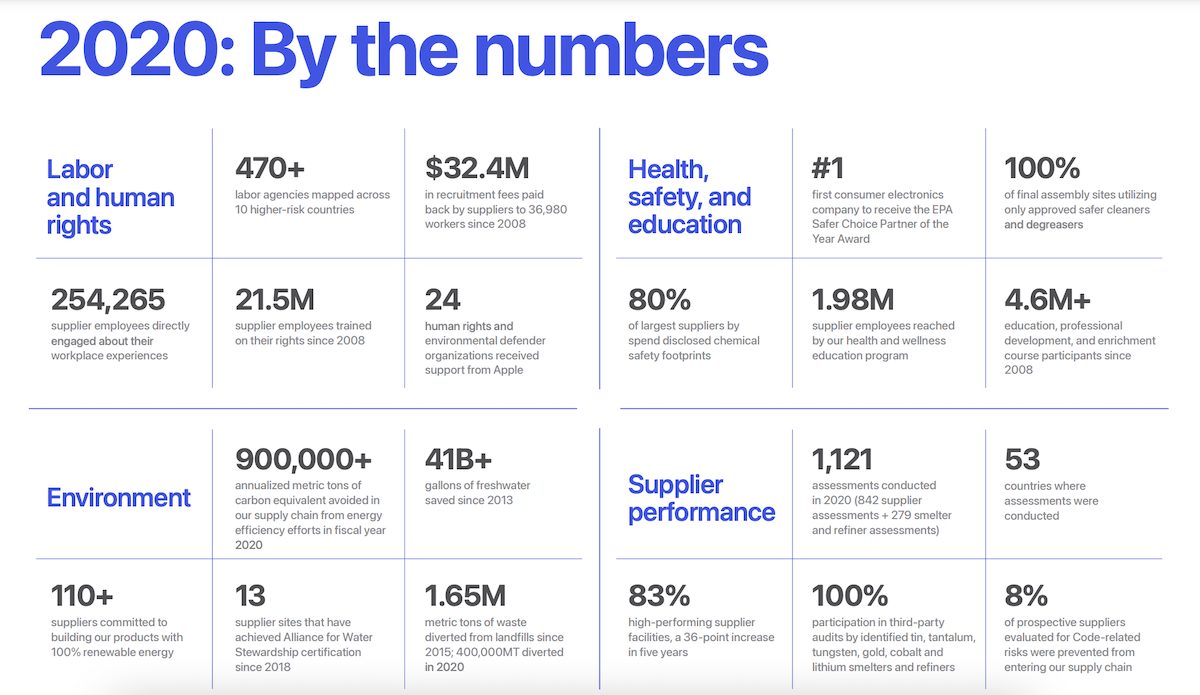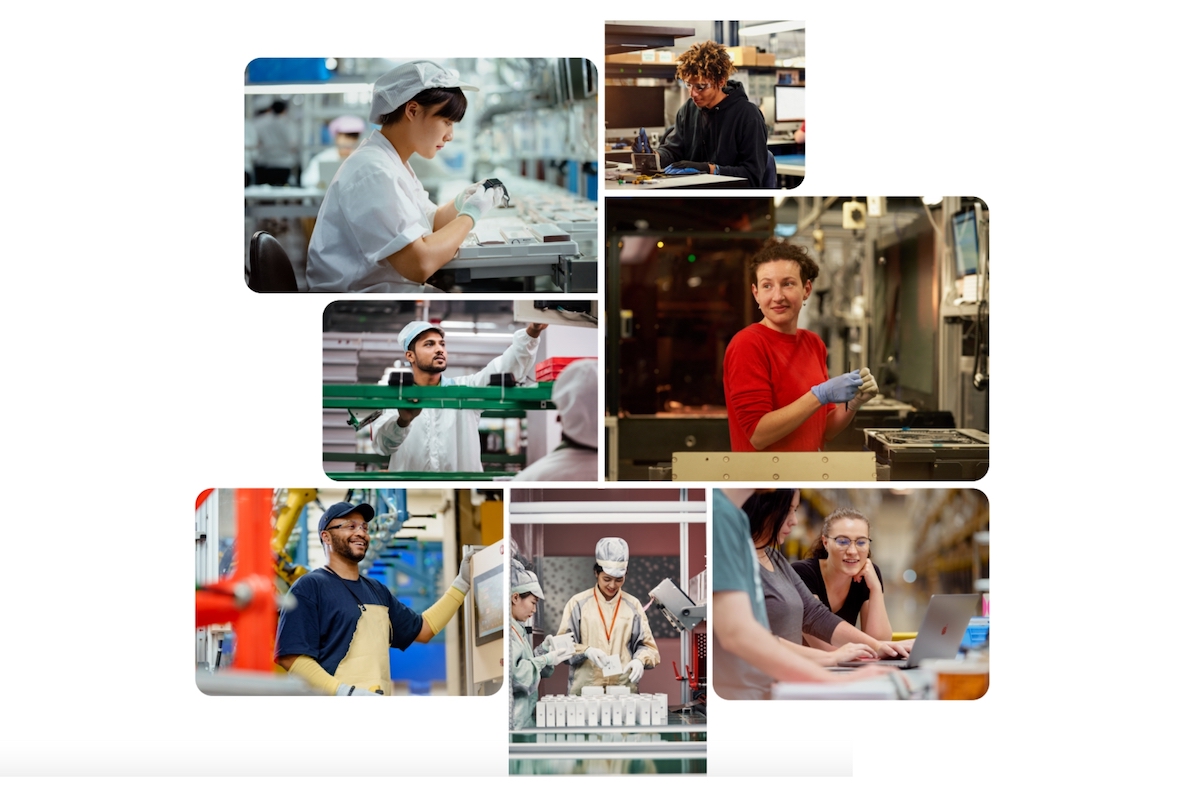Apple’s Annual Progress Report 2021 gives a detailed account of how far the Cupertino tech giant has come to ensuring human rights across its supply chain and meeting its environmental goals, especially a testing period as the prevailing COVID-19 pandemic which broke out in March 2020.
Cupertino tech giants’ CEO Tim Cook introduced the company as not only a technology maker but a place that values the rights, health, and wellbeing of every one part of its supply chain, and holding people supreme, the company ensures and constantly improves their work environment. He said,
“Apple is a technology company, but we never forget that the devices we make are imagined by human minds, built by human hands, and are meant to improve human lives.”

Apple’s supply chain audit found no evidence of forced labor – Annual Progress Report 2021
The latest progress report titled ‘People and Environment in Our Supply Chain” gives a thorough breakdown of the seven areas audited to measure the company’s progress in ensuring human rights and protecting the environment.
- Suppliers Responsibility
- Labor and Human Rights
- Health, Safety, and Wellness
- Education and Professional Development
- Environment
- Supplier Performance and Development
- Additional Resources
The company’s head of global supply chain, which includes Environment and Supply Chain Innovation, Sabih Khan summarised the findings of the report in his letter. Expressing that a single report can not detail the “lessons learned and the protocols implemented” during the COVID-19 pandemic, he started by elaborating on Apple’s hand-in-hand work with suppliers to ensure the safety of his people by providing suppliers with resources and best practices from international labor rights organizations.
From the early days of the pandemic, we worked hand-inhand with our suppliers to redesign our processes with maximum care for people’s health: reconfiguring factory floors to allow for social distancing, adopting flexible working hours to limit density, implementing frequent deep cleaning protocols, offering on-site testing, and deploying masks, face shields, sanitizers and other essential medical equipment at a global scale.

To check the implementation of the ‘Supplier Code’, Apple directly consulted more than 250,000 employees about their workplace experience and held violators accountable.
In the few instances where our standards were not met, we moved quickly to provide remedies to all those affected — and in some cases, to suspend our business with suppliers while we took steps to prevent those violations from happening in the future. Accountability remains a crucial pillar of our work and an important driver of our progress.
Apple, globally, held training sessions to educated the supply chain employees on the Code of Conduct
In 2020, our teams conducted 1,121 supplier assessments in 53 countries to ensure compliance with our Code of Conduct. And as of this year, more than 21 million supplier employees have received rights trainings, and we’ve reached 4.6 million with education, skillbuilding and enrichment courses.

Most importantly, the Cupertino tech giant claimed that the company found no evidence of forced labor in its supply chain.
We also pushed forward in our work to prevent debt-bonded labor — mapping the labor agencies that support our suppliers, and providing resources and trainings through the Responsible Labor Recruitment Toolkit we developed in partnership with the United Nation’s International Organization for Migration.
Apple has zero tolerance for forced labor, and we look for evidence of it in every assessment we conduct. Those assessments continued through the COVID19 pandemic — along with interviews of supplier employees and independent audits — and found no evidence of involuntary labor on any Apple production lines.
Moving on to the environmental initiatives, Mr.Khan shared that over 100 suppliers are now moving towards Apple’s goal to become carbon neutral by 2030.
To date, more than 110 of our suppliers, across industries and around the world, have committed to transitioning to 100% renewable energy for all their Apple manufacturing.

He ended by reiterating the company’s commitment to labor and human rights and environmental preservation.
We are committed to respecting human rights. Everyone deserves to be treated with dignity and respect, and our commitment extends to our customers, employees, contractors, and those working at every level of our supply chain.
We’ve always acted on the premise that if you’re not finding ways to improve, you’re not looking hard enough. In a year that asked us to innovate and adapt in everything we do, I can’t think of a better way to honor the lessons we learned than pushing ourselves to be the best company — and the best supply chain — we can be in our respect for people’s health, dignity, and the fundamental rights we all share.
The most prominent piece of information in the complete report is that Apple’s current supply chain does not use forced labor, which the company’s Chinese partners are often accused of forcing Uyghur Muslims to work for long hours on minimum wages. In December 2020 Apple manufacturing partner Wistron was found guilty of labor exploitation at its new Narasapura plant in Kolar, India. Read the complete report here.